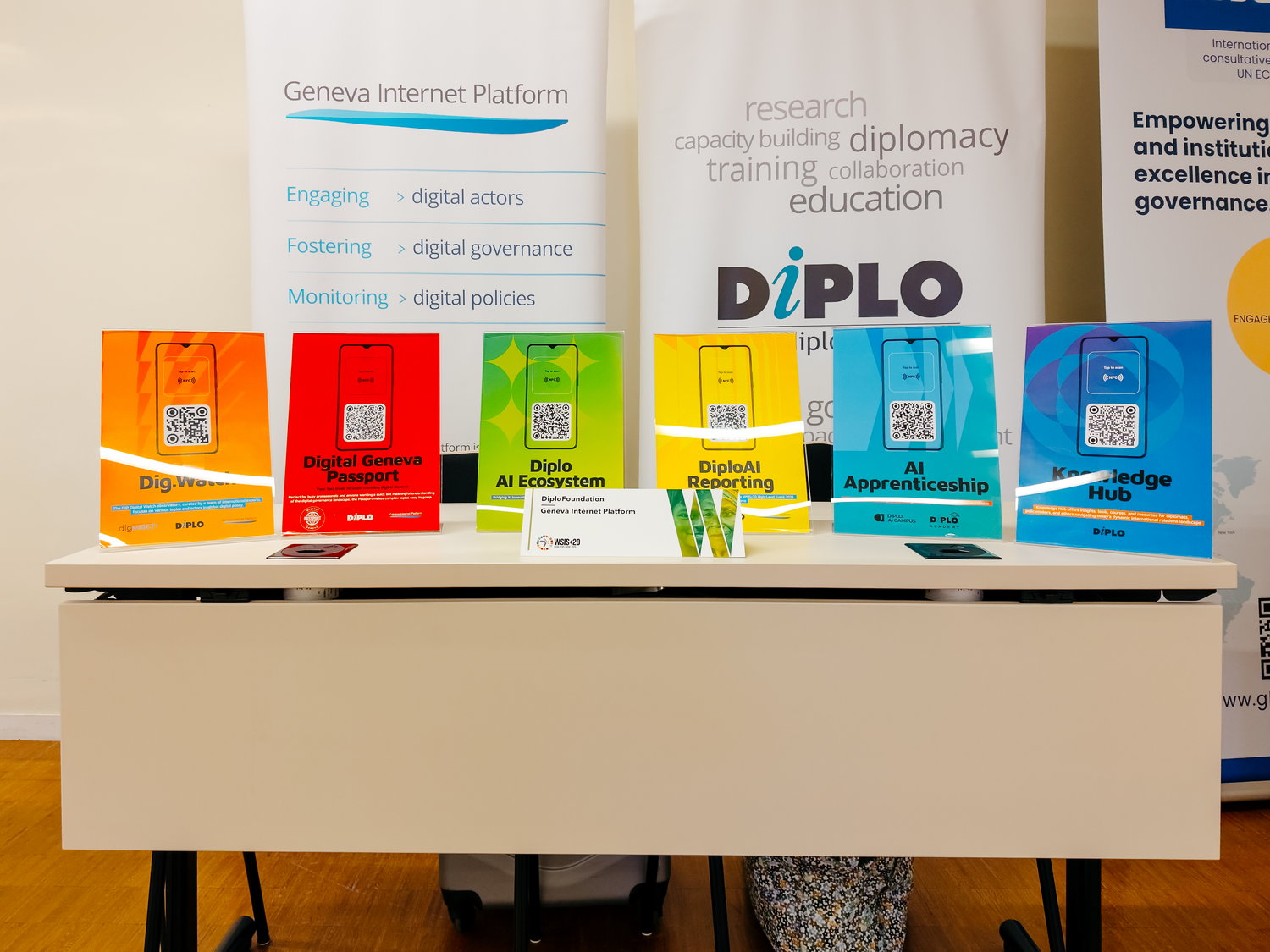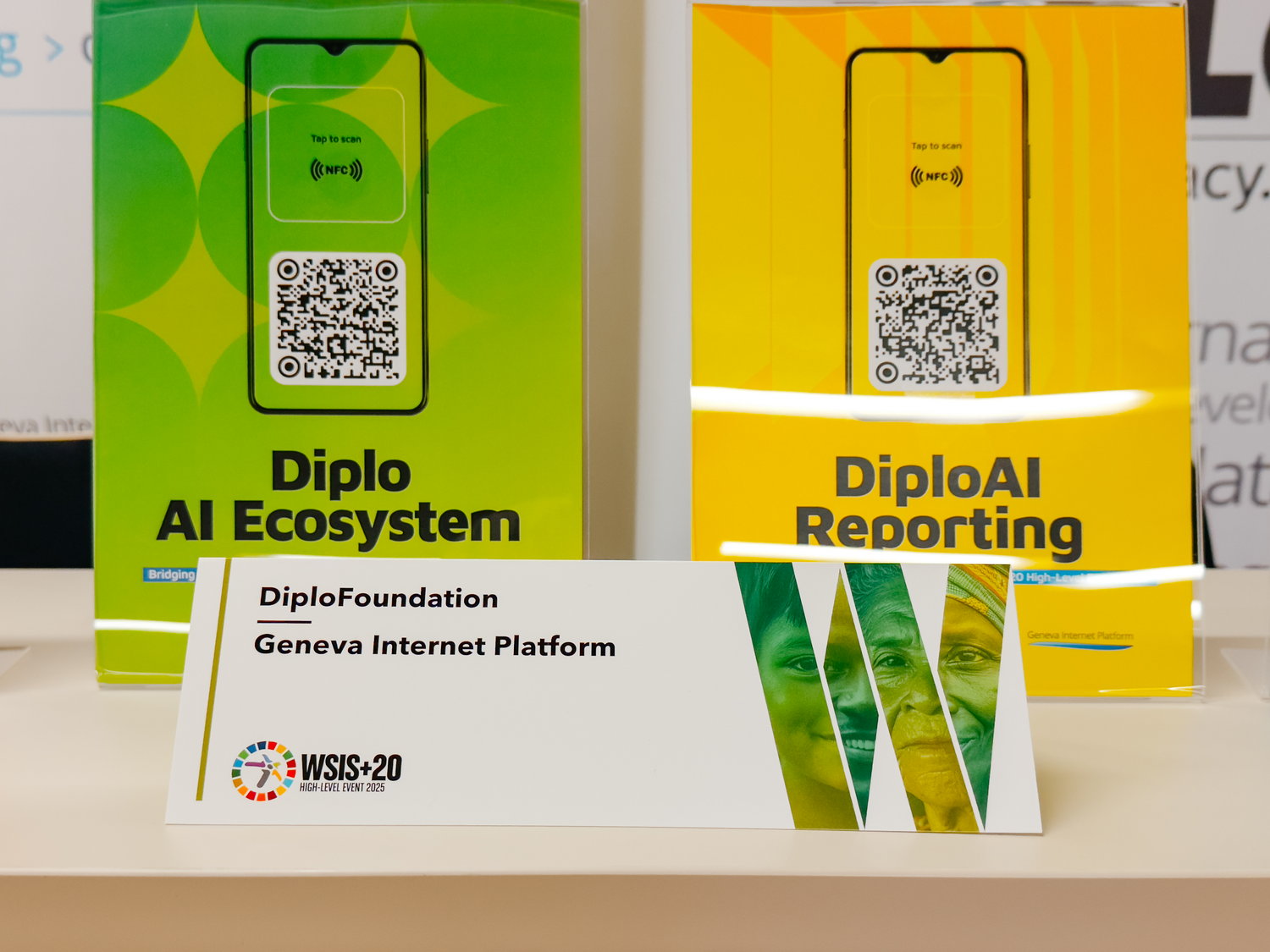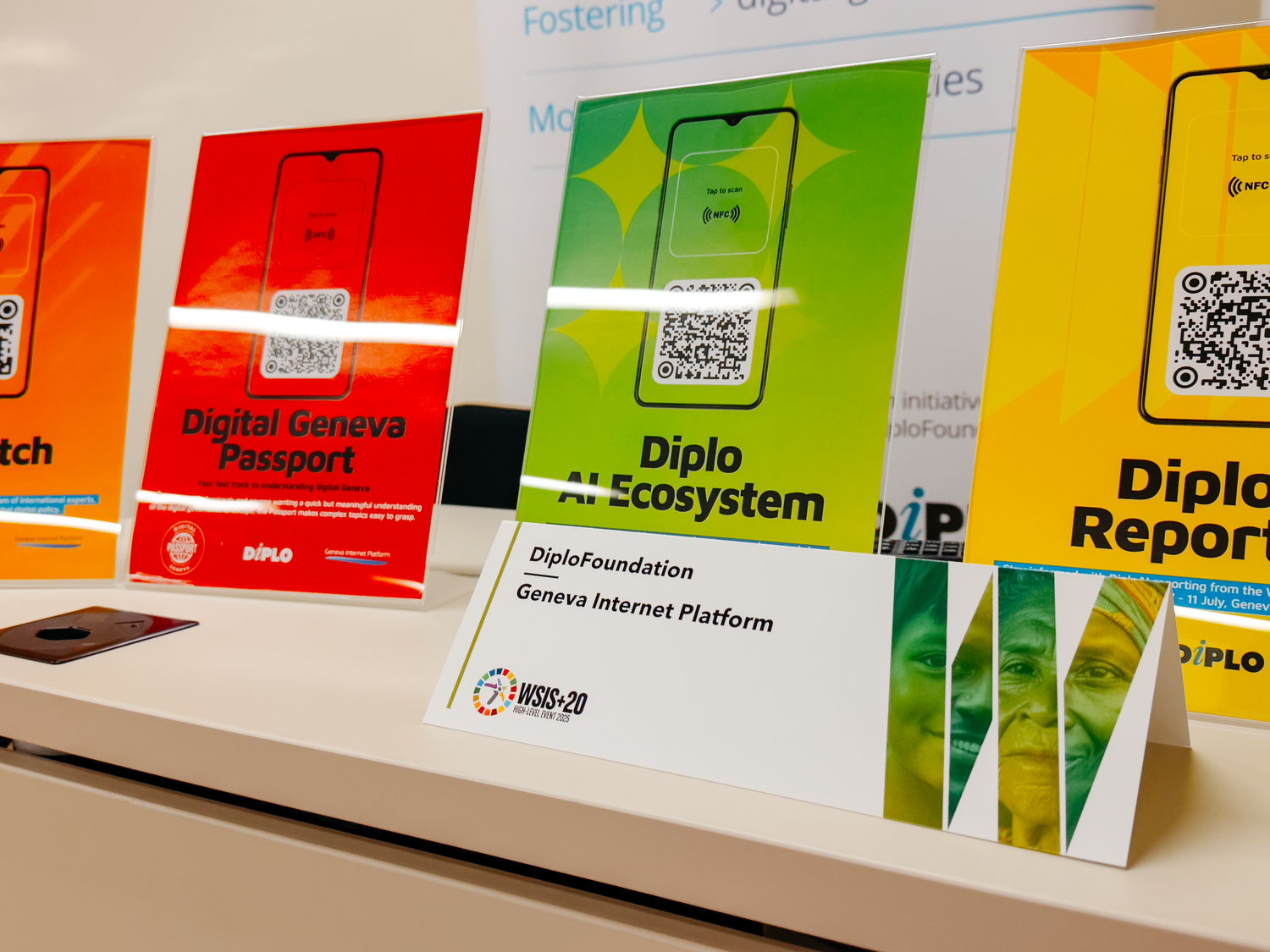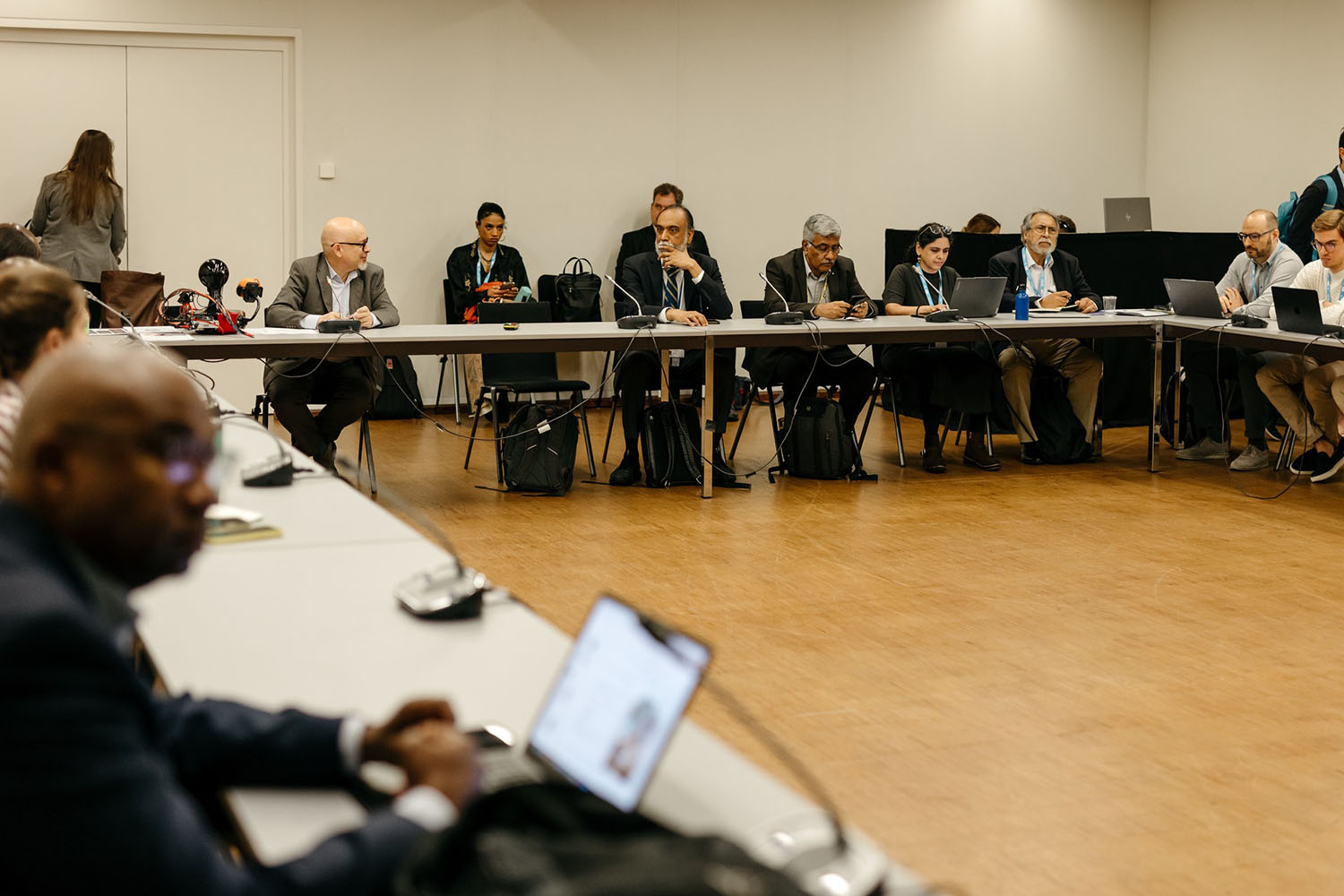
The 2025 edition of the World Summit on the Information Society (WSIS) Forum – branded as WSIS+20 High-Level Event 2025 – will take place on 7–11 July 2025 in Geneva, Switzerland. The event is co-hosted by the International Telecommunication Union (ITU) and the Swiss Confederation, and co-organised by ITU, the United Nations Educational, Scientific and Cultural Organization (UNESCO), the United Nations Development Programme (UNDP), and UN Trade and Development (UNCTAD).
The forum will facilitate multistakeholder dialogue on achievements, key trends, and challenges since the two phases of WSIS in 2003 and 2005. In the lead-up to the WSIS+20 review by the UN General Assembly, the event will also feature discussions on progress made in the implementation of the WSIS outcomes. For more information, please visit the official event web page.
Diplo and GIP will participate in the WSIS+20 High-Level Event in various ways, co-organising several sessions, having a booth at the venue, and providing just-in-time reporting via the Digital Watch observatory.
Just-in-time reporting
As in previous years, the GIP Digital Watch observatory will provide just-in-time reporting from the WSIS Forum.

Bookmark the Digital Watch space or download the Dig.Watch News+ app to stay up-to-date with our session reports.
Our sessions at WSIS+20 High-Level Event 2025
Session 155: AI (and) education: Convergences between Chinese and European pedagogical practices
Monday, 7 July, 14:00-14:45 | Co-organised by Diplo, the Geneva Internet Platform, and the Beijing Institute of Technology | Official session page
As AI becomes more and more integrated into our societies, there is an urgent need to develop effective pedagogical frameworks that prepare learners for the AI era. This session will explore the convergences and divergences between Chinese and European approaches to AI education. It will examine how AI can be best integrated into education systems to foster critical thinking, creativity, and adaptability, while addressing ethical and cultural considerations. The discussion will highlight innovative pedagogical practices, discuss challenges, and propose actions to ensure that education for the AI era is inclusive, equitable, and future-ready.
This session will take the form of a moderated dialogue around the following topics:
- The AI era and education: overview of the impact of AI on education globally; drawing parallels with past educational reforms during technological revolutions.
- Pedagogical practices in China and Europe: examination of Chinese educational philosophies (e.g. Confucianism) and of European educational models, highlighting approaches that prioritise creativity and critical thinking; discussion on strengths and weaknesses of Chinese and European pedagogical practices in the context of AI; identification of common goals, e.g. fostering critical thinking, creativity, and ethical considerations in AI use; reflections on case studies showcasing AI integration in educational settings.
- A vision for AI-enhanced education and practical stepsfor international cooperation in this field: suggestions for curriculum that incorporates AI literacy, ethical considerations, and adaptability in learning methodologies; brainstorming on how to leverage Chinese and European approaches and expertise to advance international cooperation in shaping the future of AI (and) education.
Session 423: Developing capacities for bottom-up AI in the Global South: What role for the international community?
Thursday, 10 July, 10:00-10:45 | Organised by DiploFoundation, the Permanent Mission of Kenya to the UN, Microsoft, and IT for Change | Official session page
Used responsibly, AI has the potential to turbocharge progress in support of the SDGs and drive significant economic growth and opportunities. But a significant AI divide persists, with many underserved communities facing challenges in developing, deploying and adopting AI technologies, especially in the Global South. These challenges relate to the availability of digital infrastructure, capacities to leverage data and knowledge, AI-skilled workforces, and enabling policy environments, among others.
Bridging this divide requires targeted and comprehensive capacity development efforts that prioritise the development of long-term knowledge and awareness, and empower countries and communities to drive their own AI development. The international community includes many actors (donor agencies, development banks, international organisations, companies, think tanks) which could support AI diffusion efforts in the Global South and empower countries and communities to leverage AI solutions that respond to their realities, priorities and needs.
This session will take the form of a scenario-based exercise where participants will propose a blueprint for national AI capacity development, detailing how a fictional country can accelerate AI adoption and diffusion by leveraging internal resources and forms of international support.
After an introduction to set the context, participants will be presented with a brief describing the particular circumstances of the fictional country. This will be followed by a moderated brainstorming session in which everyone – panellists and session participants – will contribute ideas for the blueprint. This blueprint will detail concrete measures to build capacities at a national and local/community level to enable the development of bottom-up AI.
At the end of the session, participants will be able to walk away with a blueprint for a national AI capacity development plan, that could then be adapted to the specific conditions of real countries.

Sessions with Diplo involvement
Session 229: Media and Education for All: Bridging Female Academic Leaders and Society towards Impactful Results
Monday, 7 July 2025, 17:00-17:45 | Official session page
Diplo’s Dr Anita Lamprecht will moderate this session, which will spotlight recent research at the intersection of media, education, and accessibility, supporting the WSIS vision of inclusive, people-centred information societies. Topics include access to information for persons with lower literacy skills or lower proficiency in a language (ENACT), AI-driven accessibility services (MOSAIC), virtual reality for inclusivity in classrooms (InclusiVRity), automatic subtitling for minority languages in educational contexts (SCRIBAL), and tools to support English learning for learners with intellectual disabilities.
The 60-minute session includes short presentations followed by a Q&A, and highlights impactful investigations led by women towards an accessible and inclusive information society where academia–industry collaboration is fundamental.
Diplo/GIP booth
If you are attending the event in Geneva, make sure to drop by our Diplo and GIP booth.
We’ll showcase some of our publications and initiatives and we look forward to engaging with you.
Event gallery




Click to show page navigation!


